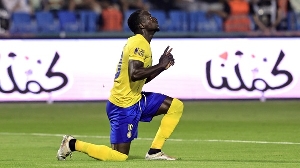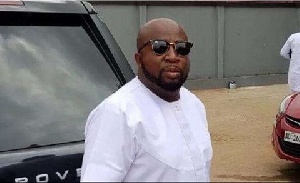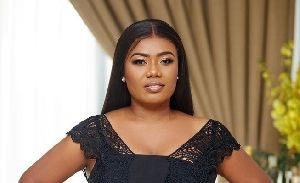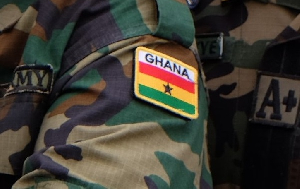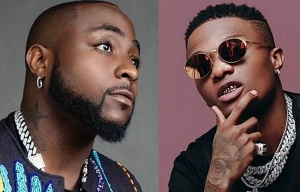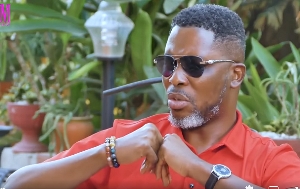I have just read over Mr. Nii Lantey Okunka Bannerman’s feature article of Friday, 25 August 2006 and although I admire him for speaking his mind I find the comparison rather preposterous (www.ghanaweb.com).
There was no need to have mentioned the name of Asantehene. There is simply no basis for the comparison he purports to be making. I think the author was too personal. He could just have talked about issues not personalities. One sees the motive of the author right from the word go. His first line reads, “When I observe president Kufour’s obsession with chieftaincy, my blood curdles.”
I think Bannerman, was simply too emotional. We may have issues with President Kufour due to the high expectations of Ghanaians but in my observation his respect for the institution of chieftaincy could be a major factor for the peace we so enjoy in Ghana. Nkrumah, though a great leader had issues as well as rivalry with chieftaincy and that divided the country. Perhaps that was the root of his demise. Many of the chieftaincy disputes we have today may have originated from those rivalry and differences. Kufour knows better now. For a sitting president to have the wisdom and sense to integrate chieftaincy could be a plus and a step forward especially if our traditional rulers would live to their expectations. And for this I say bravo and thank you, President Kufour.
I would like to submit to Mr. Bannerman that in spite of the bones we may want to pick with chieftaincy, we cannot deny the fact that it is the bedrock of our Ghanaian (and even African) culture. I think there is great value in our culture so let us refine it and maintain it. An appreciation of ones own roots perhaps must be treated as a value.
Like other great and noble kings and chiefs in Ghana, Asantehene is the successor of a long tradition of great statesmen, though, traditional one and he ought to command our reverence. I think it is our religious duty to respect chieftaincy but not to worship it though.
It is unfortunate that due to greed some individuals are perpetrating the institution and watering down its respect. Notwithstanding, we cannot generalize that all chiefs are bad. This brings me to addressing some of the issues Bannerman raises against the Asantehene.
This is a king of Ashanti whose achievements even for the few years he was installed is spectacular. His leadership needs commendation not insults. At least his care and concern for the poor and education makes him, in my opinion a model for African leaders and chiefs in general. I just cannot see the reason why some sections of Ghanaians would refuse to be analytical and keep on playing the “tribe card”. Otumfour Osei Tutu, the King of Ashanti has proved that he is not only for the Ashantis but for progress in his kingdom and the nation. For instance, his educational fund supports not only Ashantis but all ‘tribes’ living in Ashanti region. The list shows no discrimination whatsoever. Since when did Africa or the world see this progressive leadership (in a chief)? I think Ghana is old enough to scrape the word “tribe” from our diction. After a golden age of 50 Ghana should see itself as one entity. Thus Asantehene should be commended, at least on this front, for taken the lead and initiative.
Thanks to President Kufour’s leadership there is a powerful delegation of South African kings and chiefs now in Ghana to understudy how so well our traditional authorities work with our political authority. And I must add it is the great efforts of such wonderful traditional leaders such as Otumfour Osei Tutu that shine the light so bright outside our political boarders.
Now let me address some of the issues raised by Bannerman in his article.
1) What makes Bannerman think that our president plays the majority of Ghanaians for fools when it comes to the issue of chieftaincy as per his admission? What logic would it be for the president of Ghana to fight or detest chieftaincy as he, Bannerman does when the principles of chieftaincy is the bedrock of the nation’s identity (especially the Golden Stool)?
2) What has universal adult suffrage got to do with an institution that is purely based on bloodline? I think the two institutions must be treated separately, although they are not mutually exclusive. A respect for one another would determine how peacefully we can live in Ghana (and even Africa). We cannot throw away culture we must rather polish it.
3) Does a ministry of chieftaincy suggest we can never have a ministry of democracy? I rather wished Bannerman had addressed the need to trim down government and not specifically attacked the institution of chieftaincy. At any event, I believe Bannerman would soon realize that chieftaincy plays an important part in the governing of the country and to ignore it is to ask for chaos.
4) What will become of the nation when it has no tradition of its own? And what makes the traditions of Ghana? CHIEFS for what I know are the custodians of our customs and traditions. So what does Bannerman mean when he writes, “This president says chieftaincy is so dear to us! You and who Mr. President? You certainly do not speak for me and a lot of Ghanaians, I hope. This kind of political and ideological acrobatics on the trapeze of traditionalism must be rejected in its entirety. Galling indeed!!”
When did Bannerman ceased to be a Ghanaian? Or is he proposing another kind of culture for Ghanaians? At best I think he could have called for reforms and not total annihilation of this cherished institution. We should be wary of throwing our pearls before swine. You don’t throw away what you have until you have a good replacement. So what is Bannerman proposing here?
5) Bannerman wrote, “You see, if chieftaincy was that fair of a system, and Kufour is that good of a leader to govern country Ghana, why was he not selected Asantehene?” I think this is a porous argument which does not merit debate. First, chieftaincy and the presidency are not the same and cannot be compared. Bannerman by his own statement is suggesting to us as a football fan that he is, perhaps he needs to be part of the national team since he loves football and cherish the sport. So why can’t president Kufour be the president of Ghana and still have affection for chieftaincy? After all the two are not diametrically opposed to each other.
6) Does Bannerman really know what he is saying when he writes, “The Asantes are a section of Ghana right? Kufour is a bonafide Asante right? And Kufour is this fabulous leader right? So why was he not selected king of Asante when the throne became available?”
I am sorry to say that this is a laughable statement. Bannerman can only be forgiven if he admits that he has no idea about the making of kings or chiefs in Ghana. Is Bannerman suggesting that every awesome or fabulous person of some royal heritage must be installed at all cost as a king or chief? Where are the other variables Bannerman? Is not too late to ask for some education here. We all need one any way. And I am the first. Can some body tell Bannerman that Otumfour Osei Tutu was not put in place of Kufour but he is the rightful heir? One wonders where Bannerman is going with all this.
7) Let Banner man be corrected when he writes, “A careful examination of the Chieftaincy system will show its discriminatory nature.” It is not about discrimination here but JUSTICE since nothing is fair in this world. There is discrimination everywhere so the issue is not discrimination but justice for the poor and the marginalized. It is outrageous therefore for Bannerman to add that, President “Kufour would be a footnote in history if Ghana did not have a democracy.” I think it is Bannerman rather who seem to be speculating confusion and not the President. Bannerman writes,
“Prior to colonialism, chieftaincy was a simple system of government designed to meet the needs of agrarian communities.”
Did Ghana ceased to be an agrarian economy when 60% of our revenue still comes from farmers? So Bannerman by his own statement is admitting that chieftaincy is very relevant in Ghana today. It may be true as Bannerman writes that “These same chiefs were the architects of the slave trade and did get their simple pleasures met with frills from the colonialists” but to add that “chieftaincy has not done any good for Ghana” is simply unacceptable and a sign of ingratitude. It is totally out of place for Bannerman to refer to our chiefs as “these inept chiefs”. I think this is rather a sweeping statement and an apology is warranted.
With all the respect I have for Bannerman and his writings, I must say with all due respect that except for the history lessons his article he provides here his article seems to be out of place. It appears he is only trying to settle some personal scores here with two great leaders of Ghana. Yes we all have our faults but in comparison with those who have gone ahead of them I must add that President Kufour and Otumfour need our commendation for their achievements not insults. We may have very high expectations of our leaders but this does not mean they are that bad. At least we owe them our respect just as we expect them to fend well for us and our nation. On that note I say President Kufour and Otumfour Osei Tutu thank you for all the positive things you have done for our country, Ghana and more grease to your elbows. Some of us are really grateful.


